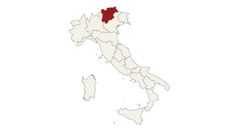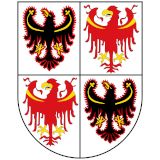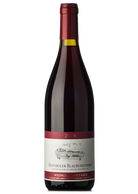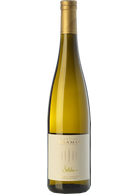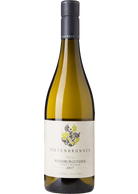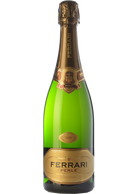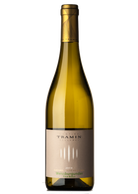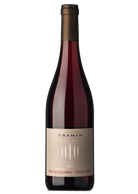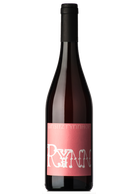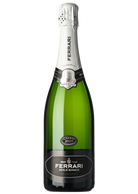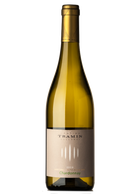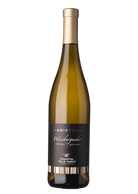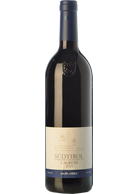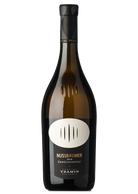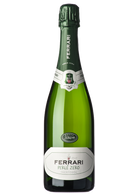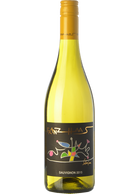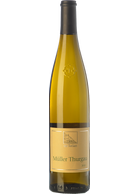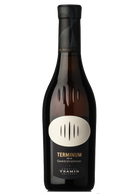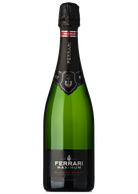Wine from Trentino - Alto Adige
Trentino-Alto Adige Tyrol is actually... two regions! Two distinct regions not only from a cultural point of view (Trentino is Italian, Alto Adige is Central European) but also from a viticultural point of view. The things in common are the climate, mainly Alpine but with milder day/night temperature differences in Trentino, and the history of the wine trade, which has always straddled the Italian market and the equally prosperous northern European one. Not only: Trentino and Alto Adige also share the history of the medieval recovery of the abbey vineyards and, more recently, by the quality cooperative wineries, which have invested heavily in international grapes.

Foradori Fuoripista Pinot Grigio 2023
BIO

Foradori Fontanasanta Manzoni Bianco 2023
BIO

Trentino - Alto Adige
Trentino-Alto Adige Tyrol is actually... two regions! Two distinct regions not only from a cultural point of view (Trentino is Italian, Alto Adige is Central European) but also from a viticultural point of view. The things in common are the climate, mainly Alpine but with milder day/night temperature differences in Trentino, and the history of the wine trade, which has always straddled the Italian market and the equally prosperous northern European one. Not only: Trentino and Alto Adige also share the history of the medieval recovery of the abbey vineyards and, more recently, by the quality cooperative wineries, which have invested heavily in international grapes.
From the alpine but sunny and protected climate, thanks to the mountains themselves, with colder currents, the vineyards of the region are among the most well-kept, modern and tidy in Italy, although viticulture, in some valleys, can certainly be defined as heroic. Wines, in general, characterised by great finesse, aromatic complexity and minerality, more the whites than the reds, thanks to the excellent day/night temperature differences even in summer.
The Trentino vineyard is mainly located along the Adige valley. Among the reds, the most significant grape of Trentino DOC is marzemino, which gives particularly remarkable results in the lower valley, between Trento and Rovereto, within the Vallagarina IGT. It is a red of delicate structure, little tannin, fruity and slightly mineral. Then there is schiava, also typical of Alto Adige, here in a more forthright and drinkable version. There is no shortage of all the international ones, from cabernet to merlot; the latter, crossed at the beginning of the twentieth century with teroldego, gave birth to the rebo, more structured, intense and complex even though it has a substantially fruity sensory texture.
Teroldego is the native red grape of the Piana Rotaliana, further north of Trento, towards Mezzolombardo. The intense fruity, jammy and balsamic bouquet expresses good freshness and pleasant softness on the palate, with returns of underbrush and humus. It can withstand a good ageing and according to some it is the true great Trentino red.
The indigenous white grape of Trentino is the nosiola. With distinct notes of hazelnut, hence the name, it is present throughout the region but especially in the Valle dei Laghi, the district that, just north of Lake Garda, develops around Arco. This is an area of great distillates, where the nosiola takes on a particularly complex and long-lived almond and toasted profile. Its highest expression, however, is the Vino Santo, produced from grapes that have been left to dry for a long time in the drying room and then aged in small barrels for at least a decade.
But the product that has made Trentino known throughout the world is undoubtedly Trento DOC, a classic method sparkling wine based on chardonnay and/or pinot nero. A mountain spumante, born thanks to the intuition of a pioneer like Giulio Ferrari, which probably represents the best Italian sparkling wine, with at least two years on lees (but the best products are also almost ten years old). Fine, elegant, taut, subtle, but also powerful and long-lived when aged for a long time (sometimes even in wood), Trento is one of the symbols of Italian wine in the world.
In Alto Adige/Südtirol, too, a single regional AOC stands out. The most representative red is probably the schiava, vernatsch in German. It gives a wine that is mostly delicate and light, fruity, mineral and very gentle tannin. It expresses itself with greater personality in the Lago di Calderara (Kalterersee) DOC, with a slightly almondy return and sometimes with refinement in wood, and in the Santa Maddalena (St. Magdalener) sub-area, in this case with a more pronounced structure. The other Alto Adige red native is lagrein, balsamic and vegetal, sometimes quite long-lived, excellent and refined both as red (dunkel) and rosé (kretzer).
Among the many international reds, pinot nero certainly excels in Alto Adige, which, in fact, for finesse and elegance, is considered here the best in Italy for the variety. Characterised by a sustained minerality, galloping tannin and pronounced acidic body, the Alto Adige Pinot Noir is capable of significant refinement even in wood, taking on characteristics of toasted and wet earthy notes. Mazzon, a magnificent cru between Egna and Termeno, is considered the beating heart of quality Italian pinot noir.
Another highlight of Alto Adige wine is the gewürztraminer. Aromatic white par excellence, typically Mitteleuropean, in Alto Adige, especially in the Termeno area, it takes on a more rounded, Mediterranean profile, with an opulent structure and expressive softness. Lychee, apricot, vanilla, moss, citrus, passion fruit form the complex mosaic of South Tyrolean gewürztraminer.
In addition to Terlan, South Tyrol's other most suitable areas are the Valle Isarco (Eisacktaler) and the Valle Venosta (Vinschgau). In the former, in addition to all the typical international varieties of the region (sauvignon, müller-thurgau, pinot bianco, pinot grigio, chardonnay, kerner...), the sylvaner excels, a taut, mineral white, with a moderate aroma but great pleasantness on the palate, which evolves over the years into a surprising complexity, perhaps corroborated by a light touch of wood. The Vinschgau Valley, on extreme slopes, has instead turned out to be the land of choice for Rhine Riesling, another masterpiece of regional viticulture. Vertical and sharp more than in other areas - where riesling takes on a warmer, more Mediterranean profile - here the Nordic grape par excellence expresses a minerality and longevity which is unparalleled in Italy.
Even Alto Adige is the land of some important sweet wines, usually produced with grapes harvested late rather than withered. There is the pink muscatel, soft and delicate, with pleasant and crunchy fruity notes. There is the yellow Muscat, not too aromatic, which is also vinified dry to obtain a fragrant white wine with good structure. And there is, once again, the gewürztraminer, which in a version attacked by botrytis cinerea gives in this region some of the greatest and most balanced botrytised wines we in Italy.
